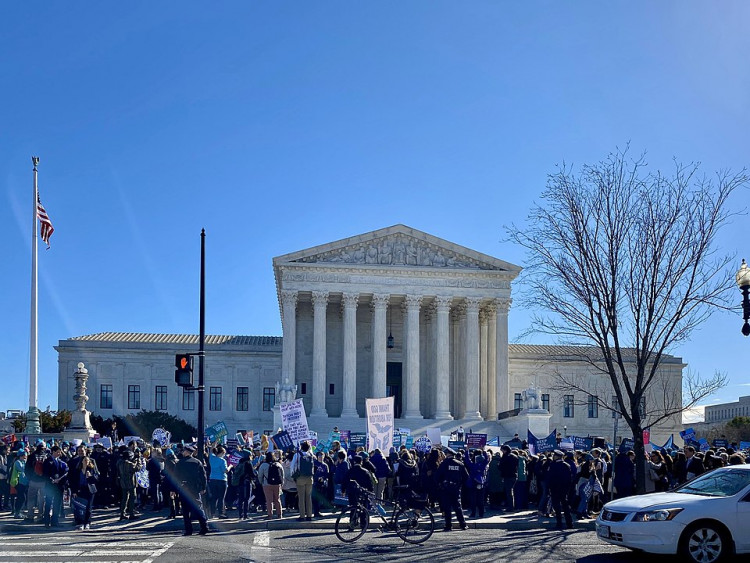A federal judge in New Hampshire on Thursday issued a sweeping nationwide injunction blocking President Donald Trump's executive order that would deny U.S. citizenship to children born on American soil to non-citizen or undocumented parents, invoking a class action mechanism that the Supreme Court had left open in a recent ruling.
U.S. District Judge Joseph Laplante certified a class of affected newborns and issued the preliminary injunction despite the Supreme Court's June 27 decision restricting the use of nationwide injunctions by lower courts. The exception noted by the Court-class action lawsuits-became the legal avenue through which Laplante moved to bar enforcement of the policy, which was slated to take effect July 27.
"The preliminary injunction is just not a close call to the court," Laplante said during a hearing in Concord. "The deprivation of U.S. citizenship and an abrupt change of policy that was longstanding ... that's irreparable harm." He added, "It is the greatest privilege that exists in the world."
The judge paused the ruling for seven days to allow the Trump administration to appeal. Justice Department attorney Eric Hamilton indicated the government intends to challenge the decision.
Trump's order, signed January 20, directed federal agencies to stop issuing citizenship documents to children born on U.S. soil unless one parent is either a U.S. citizen or lawful permanent resident. Legal experts say the order would upend the longstanding interpretation of the 14th Amendment, which guarantees birthright citizenship, based on the Supreme Court's 1898 ruling in United States v. Wong Kim Ark.
In February, Laplante had blocked the order's enforcement only for members of three immigrant rights organizations. But on Thursday, citing the Supreme Court's own language encouraging class action litigation over universal injunctions, Laplante expanded the protection nationwide for all affected newborns.
"It's a better process to narrow these decisions and not have judges create national policy," Laplante said, noting his earlier discomfort with issuing broad injunctions. "That said, the Supreme Court suggested a class action is a better option."
The lawsuit was brought by the American Civil Liberties Union on behalf of individuals such as "Barbara," a Honduran asylum-seeker living in New Hampshire and expecting a baby in October, and "Mark," a Brazilian national whose wife gave birth in March. "If the Order is left in place," the ACLU lawyers wrote, "those children will face numerous obstacles to life in the United States, including stigma and potential statelessness."
The class includes "all current and future children" whose citizenship would be threatened by Trump's order. Laplante declined to include parents in the class, citing procedural concerns. "There's no time for discovery," he said, referencing the urgency before the July 27 enforcement deadline.
ACLU attorney Cody Wofsy called the ruling "a huge victory," stating: "This is going to protect every single child throughout the country from this lawless, unconstitutional, cruel executive order."
White House spokesperson Harrison Fields criticized the decision as "an obvious and unlawful attempt to circumvent the Supreme Court's clear order against universal relief," adding, "The Trump administration will be fighting vigorously against the attempts of these rogue district court judges to impede the policies President Trump was elected to implement."
The Supreme Court's June ruling struck down three nationwide injunctions but clarified that plaintiffs could seek similar relief through class action litigation. Writing for the majority, Justice Amy Coney Barrett said class actions "have many advantages," while Justice Brett Kavanaugh emphasized that the high court remains poised to intervene on emergency matters.
Still, Justices Samuel Alito and Clarence Thomas expressed concern about class actions becoming a workaround to nationwide injunction bans. "Lax enforcement of the requirements" for certifying a class "would create a potentially significant loophole to today's decision," Alito warned.






